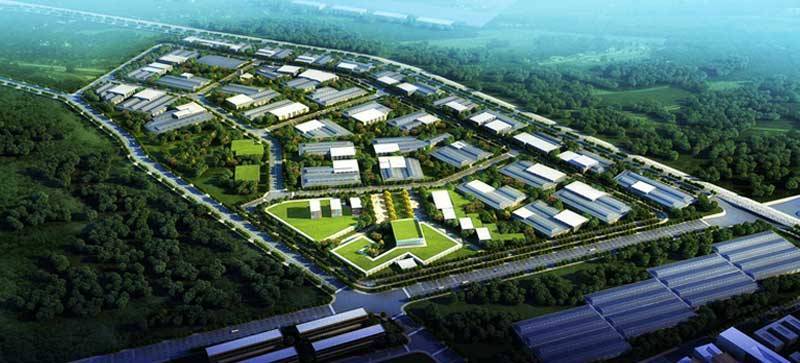The Uttar Pradesh government has constituted three high-level committees to address challenges related to industrial land availability, land rates, and building bylaws, aiming to enhance investment opportunities across the state. The decision was taken in a recent meeting chaired by Chief Secretary SP Goyal, reflecting the administration’s intent to streamline industrial development procedures and create a more investor-friendly environment.
Approximately four lakh hectares of land have been notified under various industrial development authorities, including Noida, Greater Noida, and the Yamuna Expressway Industrial Development Authority (YEIDA). Of this total, master plans have been prepared for 1.5 lakh hectares, while planning processes for the remaining notified land are still ongoing. Officials noted that even buildings predating the authorities’ notifications, despite having approved layouts, often require fresh no-objection certificates (NOCs), which are frequently difficult to obtain. This has created procedural bottlenecks and legal ambiguities for potential investors, prompting the need for dedicated committees to address such issues.
The first committee, chaired by the additional chief secretary or principal secretary of the planning department, has been tasked with reviewing practices in other states and recommending strategies to unlock notified areas for industrial investment. Its members include officials from housing and urban planning, the CEO of Invest UP, the YEIDA CEO, the chief town and country planner, and a senior law department official. The committee is expected to suggest measures that will facilitate smoother access to land for industrial purposes while ensuring regulatory compliance.
The second committee focuses on rationalizing industrial land rates, which are often higher than in neighbouring states. Officials highlighted that in some areas, such as the Bundelkhand Industrial Development Authority, land rates exceed those in nearby Gwalior, Madhya Pradesh, potentially deterring investors. Chaired by the additional chief secretary or principal secretary of infrastructure and industrial development, this committee will review existing infrastructure standards and devise strategies to reduce the cost of doing business. Its members include revenue board officials, public works department secretaries, Invest UP and Noida CEOs, the additional CEO of the UP State Industrial Development Authority, and a senior law official.
The third committee has been formed to simplify and rationalize building bylaws under industrial development authorities. Chaired by the additional chief secretary or principal secretary of the revenue department, it aims to make regulations more user-friendly and conducive to higher investment per unit area. This initiative will allow entrepreneurs to establish industrial units on smaller parcels of land, thereby improving land utilization efficiency. The committee includes officials from finance, Invest UP, Greater Noida, and a senior law department representative.
All three committees have been directed to submit their recommendations within 15 days, underlining the government’s commitment to prompt policy action. Officials stated that the committees will benchmark practices against other states and propose reforms that facilitate investment while ensuring regulatory compliance.
Industry observers noted that these measures could strengthen Uttar Pradesh’s position as a preferred investment destination. By addressing land availability, standardizing rates, and simplifying building bylaws, the state aims to improve investor confidence and reduce procedural delays. The initiative is expected to enhance the ease of doing business, attract domestic and foreign investment, and support industrial expansion in strategically important regions across Uttar Pradesh.
This proactive approach reflects the government’s recognition of the critical role land management, cost efficiency, and regulatory clarity play in fostering industrial growth. Timely implementation of the committees’ recommendations could help unlock significant economic potential and position the state as a competitive hub for industrial development in India.









.png)